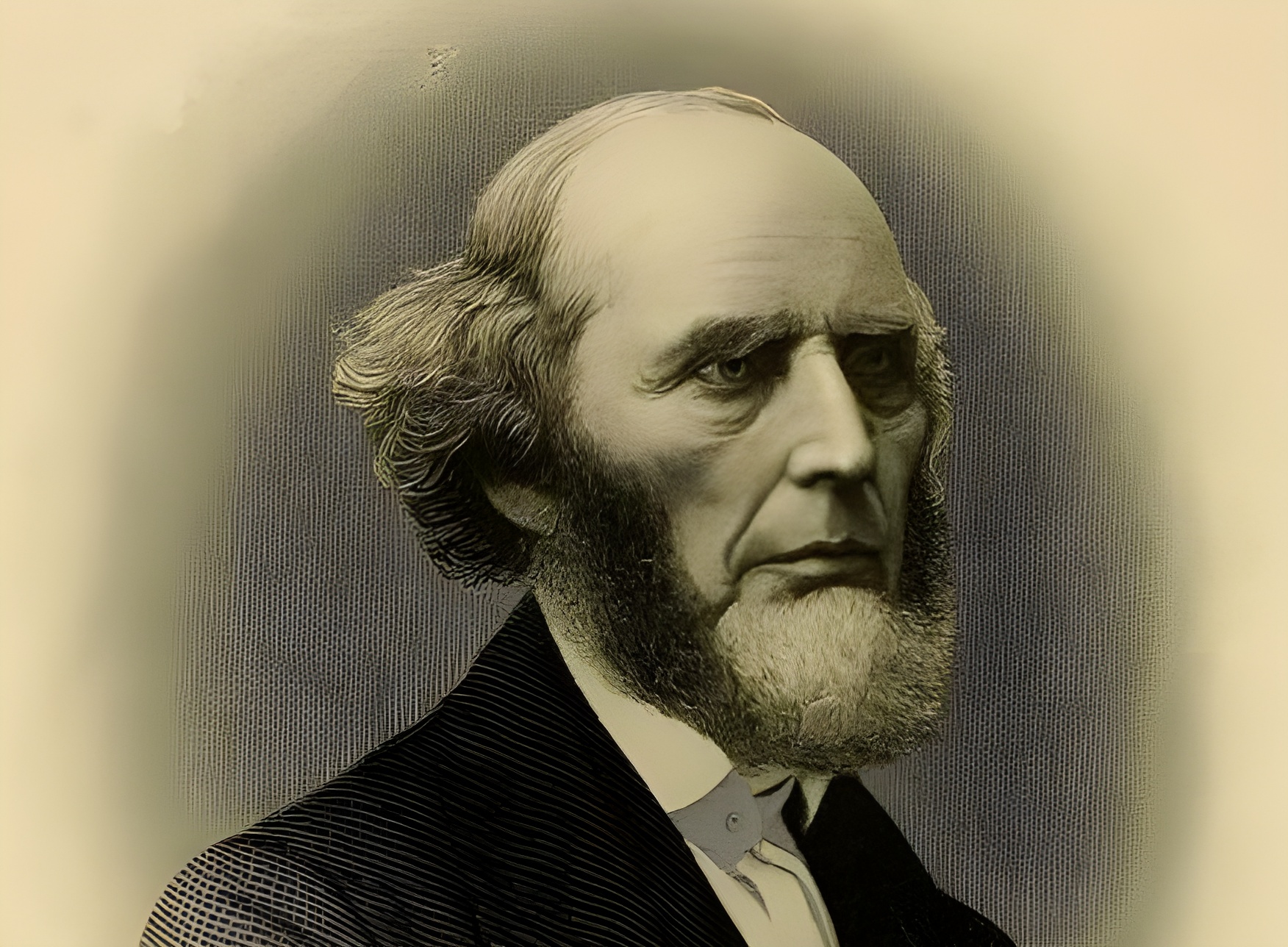Charles Grandison Finney (1792-1875), a well known American Presbyterian minister, born on the 29th of August 1792 in a small town called Warren in Connecticut but was raised in Oneida County, New York. In the midst of his flourishing job as a lawyer, Finney left his legal professional job and became an ardent follower of Jesus Christ in obedience to his call for God’s ministry. His role as a Christian leader and a revival preacher, especially during the Second Great Awakening in the United States during 1825-1835, brought him the title as ‘The Father of Modern Revivalism’.
Charles Finney, after the assurance of his salvation through faith in Jesus Christ, dedicated his life for God’s ministry and served as an evangelist who spoke at revival meetings, especially during the Second Great Awakening in the United Sates. He urged his hearers to leave their sinful lifestyles and turn to God to save themselves from eternal death. He pleaded with people to devote their lives to God. He published many of his messages as well as the messages he preached to his congregation in a volume called Lectures on Revivals of Religion. Initially, the topics of most of his messages are not grouped but are preached from week to week, as one subject naturally introduced another according to the leading of the Holy Spirit and the need of the congregation. Finney spoke on different aspects of revivals, such as, what a revival of religion is; wisdom is required to win souls; how to preach the gospel and measures to promote revivals. According to him religion is the work of man, requires obedience to God, and almost all religions in the world have come into existence as a result of some form of revival. It is absolutely true in the case of Christian faith and Church that the New Testament Church came to exist as the result of the outpouring of the Holy Spirit upon the disciples of Jesus Christ on the day of Pentecost as recorded in the book of Acts (Chapter 2). It is altogether unlikely that Christian faith will ever make progress among non-believing nations except through the influence of revivals on account of the outpouring of the Holy Spirit. A revival is possible when mankind becomes spiritual and yielding to the call of fulfilling the purpose of God in their lives and the call to live their life for the glory of God.
The earnest desire of Finney preaching his life-changing messages was to direct non-believers to Christ and Christians in the use of all their available means for accomplishing their infinitely desirable end, the salvation of souls. Finney confines his attention to the private efforts of individuals for the conversion and salvation of men. He discusses some of the means to share the gospel in various scenarios. For example, if possible, to address a person who is careless, when he is disengaged from other employments. It is important to take a person, if possible, at a time when he is not strongly excited with any other subject. One must be sure that the person is perfectly sober, where one wishes to converse with a man on the subject of salvation, and to approach him when he is in a good temper.
Finney had his own personal methods and means to reach out to the lost people. He further encouraged through his messages and writings that one should seize an opportunity to converse with a careless sinner at the earliest. This should not be put off from day to day, thinking a better opportunity will come. One must seek an opportunity, and if none arises, make one. There is a time and season for everything under the sun (Ecclesiastes 3:1) so one must wait for the appointed time to approach someone with the gospel of Christ. One should be careful to distinguish between an awakened sinner, and one who is under conviction. When one finds a person who shows an interest in the subject of spiritual things, it not be taken for granted that he/she is convicted of sin, and thus use means to show them his/her sin. Wherever there is a reason to believe that a person within reach is awakened, one must not rest till they have poured in the light upon his mind, and have tried to bring him to immediate repentance. Then is the time to press the subject with effect. According to Finney, many professors of religion do more harm than good, when they attempt to talk to impenitent sinners. They have so little knowledge and skill, that their remarks rather divert attention than increase it.
Finney admonishes his hearers that one must be careful to find the point where the Spirit of God is pressing a sinner, and press the same point in all their remarks. He was a great preacher and believed in preaching the gospel of salvation with power and enthusiasm. He preached what he practiced and he practiced what he preached. His recommendation was that preaching should be practical. The proper end of all doctrine is practice and anything brought forward as doctrine, which cannot be made use of in a practical sense, is not preaching the Gospel. Preaching doctrine in an abstract manner may fill the head with notions, but will never sanctify the heart. Thus, Preaching should be direct. The Gospel should be preached to men, and not about men. The minister must address his hearers. It should be conversational preaching to be understood, and should be colloquial in style. A minister must preach just as he would talk, if he wishes to be fully understood.
Prayer is another important aspect of revivals. Finney encourages the church to pray for ministers, that God would give them wisdom to win souls. According to him there are measures to promote revivals however, God has established no particular system of measures to be employed, and invariably adhered to, in promoting religion. Without new measures it is impossible that the Church should succeed in gaining the attention of the world. The measures of wealth, power, and fame and counteracting influences that bear upon the Church and upon the world, will gain men’s attention, and turn them away from the sanctuary and from the altars of the Lord, unless we increase in wisdom and piety, and wisely take in such new measures to get the attention of men to the Gospel of Christ.
Reflections
The contributions of Charles Grandison Finney in leading the revival movements in the nineteenth century and thereafter is tremendous. Finney’s influence is reflected in numerous mass-meetings, including mega-revival meetings, in the United States as well as around the world where the gospel of salvation through faith in Jesus Christ is announced and heard by millions. What we can learn from his ministry is that:
- The minsters of the gospel should not compromise with the standards of the world when he/she shares God’s Word
- The ministers of the gospel should be totally committed to God so that they can bring a message that is impartial to all audiences irrespective of one’s individual status
- The ministers of the gospel should be strong spiritual leaders and must lead God’s people in God’s ways and not according to a particular group’s interests
- The ministers of the gospel must take the Mandate of Christ, ‘The Great Commission’, very seriously and be empowered by the Holy Spirit for effective ministry
- The need of the hour is committed and faithful servants of God who are willing to spread the Gospel at any cost!




